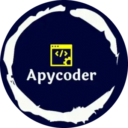Introduction
Python’s popularity is greatly attributed to its rich ecosystem of libraries that cater to a wide range of applications. In this blog post, we’ll delve into some essential Python libraries across different domains.
1. Data Science and Machine Learning
1.1 NumPy
NumPy is a cornerstone library for numerical computing in Python. It provides support for large, multi-dimensional arrays and matrices, along with a collection of mathematical functions.
# Sample NumPy code import numpy as np arr = np.array([1, 2, 3, 4, 5]) print(arr)1.2 Pandas
Pandas is a powerful data manipulation and analysis library. It offers data structures like DataFrames for efficient data handling.
# Sample Pandas code import pandas as pd data = {'Name': ['John', 'Jane', 'Bob'], 'Age': [25, 30, 22]} df = pd.DataFrame(data) print(df)2. Web Development
2.1 Django
Django is a high-level web framework known for its simplicity and speed. It encourages rapid development by providing a clean and pragmatic design.
# Sample Django code from django.shortcuts import render from django.http import HttpResponse def hello(request): return HttpResponse("Hello, Django!")2.2 Flask
Flask is a lightweight web framework suitable for small to medium-sized applications. It’s known for its simplicity and flexibility.
# Sample Flask code from flask import Flask app = Flask(__name__) @app.route('/') def hello(): return 'Hello, Flask!'3. Data Serialization and Storage
3.1 JSON
The JSON library in Python provides an easy way to encode and decode JSON data.
# Sample JSON code import json data = {'name': 'John', 'age': 30, 'city': 'New York'} json_data = json.dumps(data) print(json_data)3.2 SQLite
SQLite, a built-in Python library, offers a lightweight disk-based database suitable for various applications.
# Sample SQLite code import sqlite3 conn = sqlite3.connect('example.db') cursor = conn.cursor() cursor.execute('CREATE TABLE IF NOT EXISTS users (id INTEGER PRIMARY KEY, name TEXT)') conn.commit()4. Testing
4.1 unittest
The unittest library, part of the Python standard library, offers a framework for writing and running unit tests.
# Sample unittest code import unittest class TestStringMethods(unittest.TestCase): def test_upper(self): self.assertEqual('hello'.upper(), 'HELLO') if __name__ == '__main__': unittest.main()4.2 pytest
pytest is a flexible and widely-used testing framework for writing simple unit tests with concise syntax.
# Sample pytest code def test_upper(): assert 'hello'.upper() == 'HELLO'5. Networking and APIs
5.1 Requests
The Requests library simplifies making HTTP requests, making it easier to interact with web services and APIs.
# Sample Requests code import requests response = requests.get('https://www.example.com') print(response.text)5.2 Flask-RESTful
Flask-RESTful is an extension for Flask that adds support for quickly building RESTful APIs.
# Sample Flask-RESTful code from flask import Flask from flask_restful import Resource, Api app = Flask(__name__) api = Api(app) class HelloWorld(Resource): def get(self): return {'hello': 'world'} api.add_resource(HelloWorld, '/')6. GUI Development
6.1 Tkinter
Tkinter is the standard GUI toolkit included with Python, providing a simple way to create graphical user interfaces.
# Sample Tkinter code import tkinter as tk root = tk.Tk() label = tk.Label(root, text="Hello, Tkinter!") label.pack() root.mainloop()6.2 PyQt
PyQt is a set of Python bindings for the Qt application framework, allowing for the creation of robust desktop applications.
# Sample PyQt code from PyQt5.QtWidgets import QApplication, QLabel app = QApplication([]) label = QLabel('Hello, PyQt!') label.show() app.exec_()7. Natural Language Processing (NLP)
7.1 NLTK (Natural Language Toolkit)
NLTK is a comprehensive library for working with human language data, providing tools for tasks like tokenization, stemming, and more.
# Sample NLTK code import nltk nltk.download('punkt') text = "This is a sample sentence for tokenization." tokens = nltk.word_tokenize(text) print(tokens)7.2 Spacy
Spacy is an advanced NLP library that excels in natural language understanding tasks.
pythonCopy code
# Sample Spacy code import spacy nlp = spacy.load("en_core_web_sm") doc = nlp("This is a sample sentence for named entity recognition.") for ent in doc.ents: print(ent.text, ent.label_)
Conclusion
This comprehensive list only scratches the surface of Python’s expansive library ecosystem. As you continue your journey in Python development, consider exploring these libraries further to enhance your projects and streamline your coding process.
If you found this exploration of Python libraries helpful, be sure to check out my YouTube channel ApyCoder for more in-depth tutorials, coding tips, and discussions on Python and web development. Subscribe for regular updates and dive deeper into the world of programming.
Happy coding and exploring!

